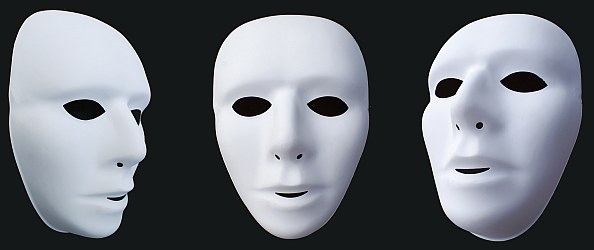 During the first months of our lives, those who surround us love us for who we are and what we are. When we are first born, we bring smiles and understanding. Even when we cry, people love us and know we cry not for attention, rather for good reason.
During the first months of our lives, those who surround us love us for who we are and what we are. When we are first born, we bring smiles and understanding. Even when we cry, people love us and know we cry not for attention, rather for good reason.
In time, the smiles turn to anguish and the understanding frequently to aggression. We begin to be “domesticated” by our parents, grandparents and others.
Do this!
Don’t do that!
If we want the approval of others, we learn little by little we must act in certain ways. We begin to mold our behavior to receive the attention we desire. When we cry, people pay attention to us, though not always in the way we want. When we do some things, we are praised and given rewards. When we do others, we are chastised and reprimanded.
We begin to act in accordance to what we have learned. We know for example:
“Good kids don’t cry.”
“Kids should be seen and not heard.”
As a result, we begin to use a series of “masks” to obtain what we want. These masks begin as something quite simple. To get a piece of chocolate or other reward, for example. The masks then develop, transform and become more complex with age. In order to achieve our objectives, we learn it is often better to put on our mask and act according to what we feel will get the best results, rather than how we feel inside.
“Who did their homework?” our teacher asks in school. Timidly we raise our hand knowing we haven’t done it and then hoping we aren’t asked a question. When someone else’s name is called, we breathe a sigh of relief, content in our “good fortune.”
At work our boss demands, “We need this done by tomorrow morning. You can get it done, right?” “Of course!” we respond knowing full well it isn’t possible with what we know and what we have at that time. Then we leave, bad-mouthing our boss for being so severe.
In time we realize many times it is better to tell people what they want to hear, instead of what we are thinking. As a result, we begin to act and be not as we are, rather as we believe others want us to be.
It’s difficult to imagine, and perhaps a bit scary to think about, all of us taking off our masks and revealing what we really believe. Nevertheless, being open and honest with ourselves about what we feel and believe can pay great dividends.
When we stop using masks to please others we begin to live a life which is more transparent, abundant, and authentic.
∞ Rob McBride ∞
LL II 42




 / Faro de
/ Faro de